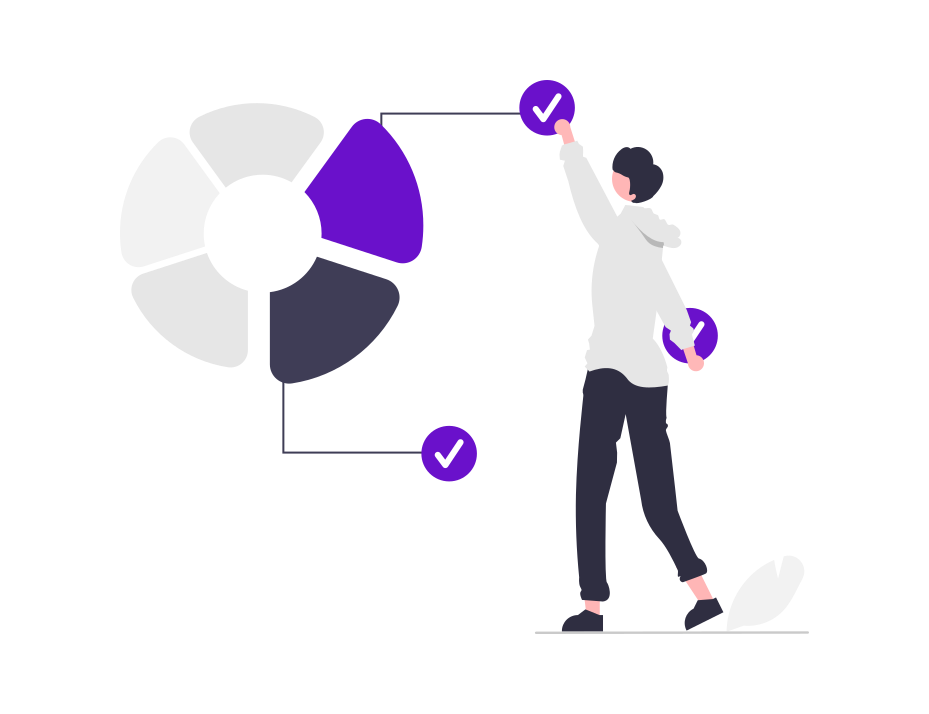The Internet of Things (IoT) has revolutionized various industries by connecting devices and enabling the exchange of real-time data. When combined with Account-Based Marketing (ABM), IoT unlocks new potentials for optimizing operations and delivering highly targeted marketing campaigns. This blog explores how integrating IoT with ABM can transform marketing strategies and drive significant business growth.
Understanding IoT and ABM
IoT refers to the network of physical objects—devices, vehicles, appliances, and more—embedded with sensors, software, and other technologies to connect and exchange data with other devices and systems over the internet. This interconnected web of devices provides valuable real-time insights into operations, usage patterns, and customer behaviors.
ABM is a strategic approach that focuses on identifying and targeting high-value accounts, creating personalized marketing campaigns tailored to each account's specific needs and challenges. By concentrating on the most promising prospects, ABM aims to maximize ROI and drive revenue growth.
The Synergy Between IoT and ABM
Integrating IoT with ABM brings a new level of precision and efficiency to marketing efforts. Here are several ways IoT-enabled solutions enhance ABM strategies:
-
Real-Time Data Collection and Analysis
IoT devices continuously generate vast amounts of data, providing real-time insights into how products are used and how operations can be improved. Marketers can leverage this data to understand customer behaviors, preferences, and pain points. For example, a manufacturer can use IoT data to monitor the performance of industrial equipment and predict maintenance needs, ensuring minimal downtime and optimal performance. This data can be used to create highly personalized marketing campaigns targeting specific customer needs and preferences.
-
Enhanced Customer Profiling and Segmentation
IoT data allows marketers to build comprehensive profiles of their target accounts, encompassing details about usage patterns, operational challenges, and preferences. With this enriched data, marketers can segment their audience more effectively, delivering tailored content that resonates with each segment. For instance, a smart home technology company can segment its audience based on usage patterns, such as energy-saving behaviors or entertainment preferences, to deliver personalized recommendations and promotions.
-
Optimized Product Development and Innovation
IoT data provides valuable feedback on product performance and customer satisfaction, enabling companies to refine their offerings and develop innovative solutions that meet market demands. By integrating IoT insights into their ABM strategies, companies can proactively address customer needs and stay ahead of competitors. For example, an agricultural equipment manufacturer can use IoT data to develop smarter, more efficient machines that address specific farming challenges, thus positioning themselves as industry leaders.
-
Improved Customer Engagement and Retention
With IoT-enabled devices, companies can engage with their customers in real-time, providing timely support, updates, and promotions. This ongoing interaction fosters stronger relationships and enhances customer loyalty. For instance, an automotive company can send maintenance reminders, software updates, and personalized offers directly to connected vehicles, ensuring customers receive the best possible experience and stay loyal to the brand.
-
Precision Targeting and Campaign Automation
IoT data allows for more precise targeting of marketing campaigns, ensuring messages reach the right audience at the right time. By integrating IoT insights with ABM platforms, marketers can automate and optimize their campaigns, delivering personalized content based on real-time data. For example, a healthcare provider can use IoT data from wearable devices to send personalized health tips, reminders, and offers to patients, improving engagement and health outcomes.
Practical Applications Across Industries
The integration of IoT and ABM has far-reaching implications across various industries:
- Manufacturing: IoT sensors monitor equipment performance and predict maintenance needs, while ABM targets key accounts with tailored solutions for operational efficiency and cost savings.
- Healthcare: IoT devices track patient health metrics, enabling personalized care plans and targeted health campaigns to improve patient outcomes and satisfaction.
- Retail: IoT technology tracks customer behavior in stores, allowing for personalized promotions and recommendations, optimizing inventory management, and enhancing the overall shopping experience.
- Automotive: Connected vehicles provide real-time data on driving habits and vehicle health, enabling targeted maintenance reminders, safety tips, and promotional offers for related products and services.
- Agriculture: IoT devices monitor soil conditions, weather patterns, and crop health, allowing for precision farming techniques and targeted marketing of agricultural products and services.
Future Prospects and Challenges
The integration of IoT and ABM is still in its early stages, but the potential is immense. As technology continues to evolve, the ability to collect, analyze, and act on real-time data will become even more sophisticated, leading to more precise and effective marketing strategies.
However, challenges such as data privacy, security, and integration complexities must be addressed to fully realize the potential of IoT-enabled ABM. Companies must invest in robust security measures, comply with data protection regulations, and ensure seamless integration of IoT and ABM platforms.
Conclusion
Integrating IoT with ABM represents a significant advancement in marketing, providing real-time insights and enabling highly targeted, personalized campaigns. By leveraging IoT data, companies can optimize operations, enhance customer engagement, and drive business growth. As industries continue to embrace IoT technology, the synergy between IoT and ABM will unlock new opportunities for innovation and success.


